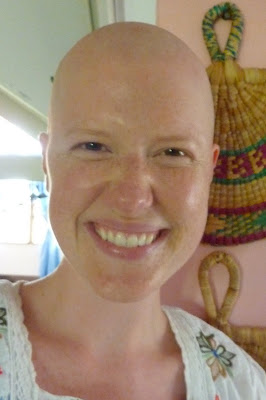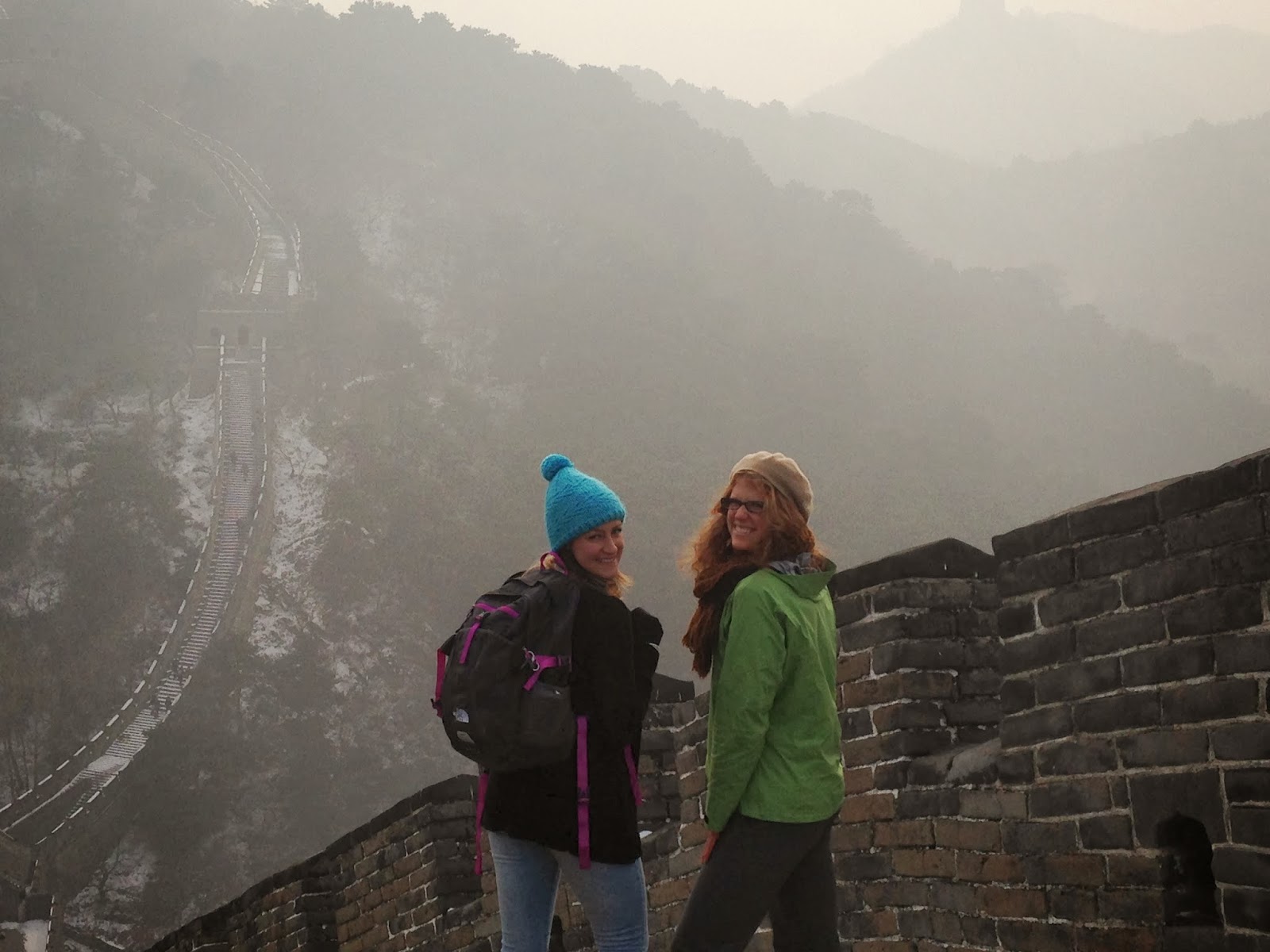Five Days: 1000 Adventures
 |
| my Couchsurfing host |
For many years, I have been dreaming of making a trip to
northern Africa, particularly Morocco and Tunisia. When looking at flights from
Dakar to Manila, I noticed that one pathway routed me through Tunis, the
capital of Tunisia; I made a stop off for five days and was entirely glad I
did. What a beautiful country! My first objective was to find a host in
Tunis—through Couchsurfing—to discuss and live Tunisian culture and to keep my
bags for me as I traveled south. I was blessed with an incredible host—a female
student of medicine who is my age—who took me into her family’s home, fed me
copious amounts of delicious food that her mother made and willingly conversed
on an array of topics pertinent to our intersecting cultures.
I started in Carthage before heading south, with a fast tour
of the Roman ruins remaining on this very rich historical site. There is
something about nearly 2000-year old bricks that quite intrigues me. I suppose
they charm my imagination as I muse about how the civilization must have looked
when the ruins were in their architectural glory. The next day, I took a bus
down south to Tozeur, the largest oasis in Tunisia, in hopes of finding someone
with a camel to take me into the desert. Reaching the city, I set out to find a
place to stay that night, thinking I would depart the next morning on my camel;
it was more difficult than I thought to find an inexpensive hotel.
 |
| Carthage ruins, one example of many scattered throughout the city |
 |
| one of many beautiful doors |
I stopped in a shop to ask where a certain hotel was
located, and someone came running to help me. He seemed nice albeit of an
uncertain moral character as is the tendency of most tourism agents. I told him
my plan and he said that he was a guide and could take me to the desert on a
camel, connecting me with a Bedouin family where I could spend the night in
their camp. He quoted an outrageous price (80 dollars)—nearly all the funds I
had brought with me—but I so wanted to stay with the Bedouins that I decided I
would proceed. I was so excited about my camel ride in the desert that I did
not really pause to ask too many questions; little by little I received a
better picture of what was transpiring and negotiated some of my money back. He
took my money and kept the majority for himself, which is sad considering he
did none of the work. My camel shepherd and darling hosts made only a pittance.
We mounted the same camel together, which minimized some of
the pleasure of the ride. I told him to keep his hands off of my thighs, and I
answered his questions curtly, hoping he would get the point that I did not
want to chat with him. Thankfully before arriving at the Bedouins’ abode, I got
up enough gumption to tell him that I had no more need of him and that I would
prefer if he did not return with the camel shepherd the next morning; however,
I am grateful to him for having shown me the way to an amazing family and an
incredible shepherd.

Bedouins live very simply, using whatever natural and
manmade materials at their disposition to make their huts and tents. Using
dried palm fronds, pieces of corrugated metal, sheets of plastic and woven
carpets made with camel, sheep or goat hair, they are able to construct
relatively sturdy structures capable of withstanding volatile desert forces. I
was very content to be able to spend two nights with two different Bedouin
families. Even though we did not speak the same language, the language of
appreciation and hospitality sufficed for our short and pleasant encounter. I
ate couscous and drank strong tea with the families and even helped feed the
sheep a mixture of grains and dates.
 When my camel shepherd returned the next morning, we had
such a tranquil ride in the desert. He even ran with my camel! Master and
animal resembled one another and each seemed solid and suited to the desert. We
struck up a nice conversation, and he offered to take me to his family and show
me the “real” desert—sand dunes and vast stretching desert beyond the eyes’
reach. Quite dissimilar to my other friend, the obsequious guide, I trusted him
and decided that it would be great to spend the rest of my money and hitchhike
back to Tunis the next day. We headed to a neighboring oasis town called Nefta
and descended from the vehicle on the side of the road. Just over the hill was
a small settlement of Bedouins where we stayed the night. I promised him the
rest of my money (15 dollars) but he went above and beyond in paying for my
transport, procuring food to give to his friends to cook, buying me a bracelet
from a local lady selling her wares and walking me into the wondrous desert on
one of God’s noblest creatures. I love camels! The wind raged that night, and I
fell asleep in a small palm frond structure, attempting to cover myself from
the swirling sands.
When my camel shepherd returned the next morning, we had
such a tranquil ride in the desert. He even ran with my camel! Master and
animal resembled one another and each seemed solid and suited to the desert. We
struck up a nice conversation, and he offered to take me to his family and show
me the “real” desert—sand dunes and vast stretching desert beyond the eyes’
reach. Quite dissimilar to my other friend, the obsequious guide, I trusted him
and decided that it would be great to spend the rest of my money and hitchhike
back to Tunis the next day. We headed to a neighboring oasis town called Nefta
and descended from the vehicle on the side of the road. Just over the hill was
a small settlement of Bedouins where we stayed the night. I promised him the
rest of my money (15 dollars) but he went above and beyond in paying for my
transport, procuring food to give to his friends to cook, buying me a bracelet
from a local lady selling her wares and walking me into the wondrous desert on
one of God’s noblest creatures. I love camels! The wind raged that night, and I
fell asleep in a small palm frond structure, attempting to cover myself from
the swirling sands. |
| my second Bedouin hosts with a morning fire preparing the tea |
I was reminded once again of the way in which God guides my
steps and cares for me along the way. We left the next morning after a small
glass of strong, sugary tea. I was prepared to hitchhike about 260 miles,
leaving at 7 am and hoping to arrive before 8 pm. What I love about hitchhiking
is that I am able to connect with some of the local culture. Tunisians are
quite used to seeing hitchhikers on the rode, and I rarely waited more than 15
minutes. My final ride was a man with his three daughters who put a cold drink
and some crackers almost instantly in my hand when I got into the car. The man
offered to pay my way back to Tunis on the evening bus from their town if I
wanted to spend the day with his family. I decided that it would be an excellent
opportunity to see another Tunisian home and get to know the local culture. His
wife and daughters were quite keen on my presence, having never encountered a
foreigner before my arrival. I ate lunch with them, they painted henna on my
hands and I learned a few Arabic words before the father told me that he would
drive me to Tunis that night!
 |
| inside the Medina bazaar |
My Couchsurfing host came in her car to meet us downtown.
With a wave of the hand, they were off, and I was left to continue my adventure
in Tunis. My final day I spent exploring one of the oldest neighborhoods in
Tunis called Medina, where the main market sprawls around the Zitouna mosque.
Brightly colored doors, small streets and vibrant cafés, stalls after stalls of
Tunisian treasures and people milling everywhere socializing and buying. To end
the day, I went to Sidi Bou Said—a small seaside town outside of Tunis and
connected by a local, inexpensive train—to meet my host and two other
couchsurfers staying with her. The sea was radiant, reminding me of the varied
beauty of Tunisia: the expansive and awesome desert and the sparkling,
enchanting sea harkening another voyage I hope to make to this historically,
culturally, gastronomically rich place.




Comments